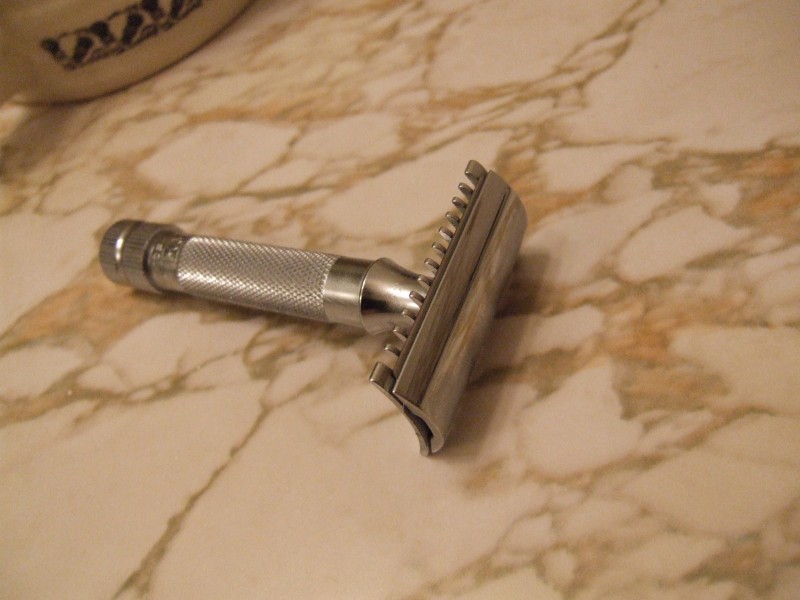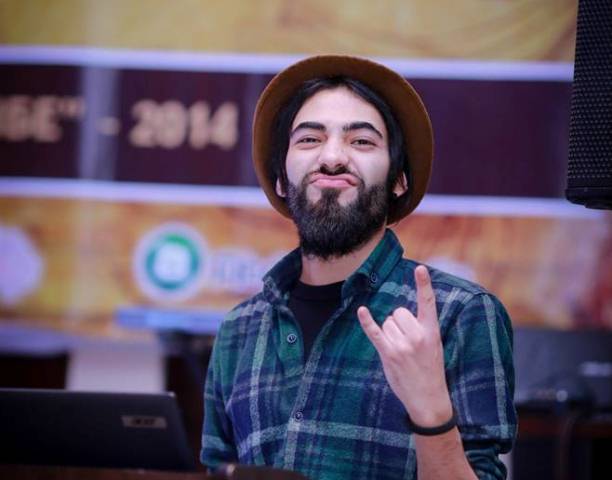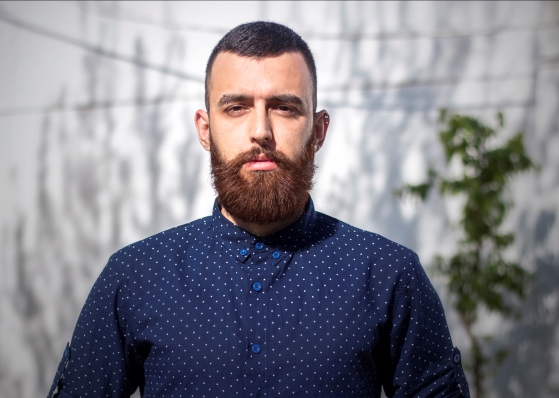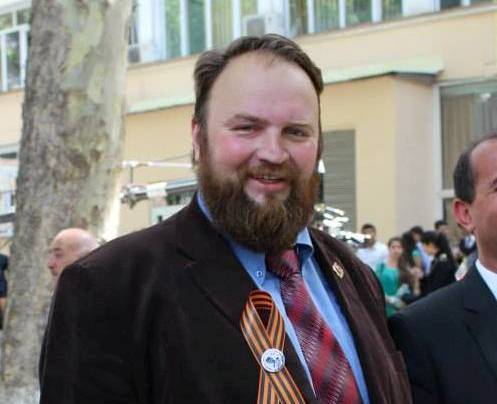
Flickr image by the user Joebeone.
Around the turn of the eighteenth century, Russia's great moderniser Peter the Great introduced one of history's strangest taxes: the beard tax. More than three centuries later President Emomali Rakhmon's Tajikistan is facing down facial hair with the same fanatical fervour.
Inspired by the more clean-shaven cultures of Western Europe, Tsar Peter wanted Russians to follow suit:
After Peter’s triumphant return to Russia at the end of his European voyage in 1698, a joyous reception was thrown in his honor. In attendance were his commander of the army, his frequent second-in-command Fyodor Romodanovsky, and a host of assorted aides and diplomats. Suddenly, the crowd’s mood went from elation to horror as Peter unexpectedly pulled out a massive barber’s razor. As biographer Robert K. Massie writes, “After passing among his [friends] and embracing them… he began shaving off their beards” with his own hands! Given his political stature, none of his associates dared question this stunning turn of events. (His physical stature didn't hurt either: Peter stood an imposing 6’8”.)
Hairless necks and faces were all the rage in the Western World, so the Czar initially ordered that all of his subjects (excluding clergy and peasants) must lose their face fuzz. So dedicated was Peter to his cause that he even instructed police officials to personally shave those who refused to comply on sight.
While Tajikistan's Ministry of the Interior denies similar instructions are in place in the Central Asian country, reports that cops have been forcibly shaving men with facial hair are widespread.
If Peter was targeting what he regarded as a certain backwardness inherent in the Russian beard, Tajikistan's target appears to be the growing influence of Islam in local society.
President Rakhmon, 62, who was a collective farm boss before he ascended to power in the Muslim-majority country, is cracking down hard on the religion and everything connected with it.
In addition to a de facto beard ban, this year saw restrictions on the import of hijabs and a drive to eliminate Arabic and other foreign names from everyday use.
Yet scandalously, some men are still roaming Tajik streets with furry faces.
Asia Plus, one of Tajikistan's few independent news outlets, interviewed a few of them:

Dzhavod Rabzhadov, a Dushanbe DJ. Image courtesy of Asia Plus.
Милиция останавливает редко, но если останавливает, то скорее из-за всего образа в целом: серьга в ухе, длинные волосы, стиль одежды. На улицах на мою внешность реагируют по-разному: кому-то нравится, кому-то – нет. Я стараюсь следить за своей бородой, придавать ей красивую форму.
Кстати, бороду ношу достаточно давно, мне так удобно и нравится свое отражение в зеркале.
Dzhavod Rabzhadov, a Dushanbe DJ: Police rarely stop me, but if they stop me, it is usually because of my general look: an earring, long hair, my style of clothes. In the streets people respond to my appearance differently: some like it, some don't. I try to take care of my beard, and give it a nice shape. By the way, I have been wearing a beard for a long time now, so I feel comfortable with my reflection in the mirror.

Romish Ibrohimov. Image courtesy of Asia Plus.
Romish Ibrohimov, designer and photographer: Бороду я отпустил не по религиозным соображениям и не потому, что хотел быть брутальным, а потому, что она красивая, рыжая и мне нравится.
На улицах Душанбе моя борода, чаще всего, привлекает внимание обычных людей: все считают необходимостью спеть мне строчку из песни: «У тебя есть борода, и я скажу тебе – да».
Впрочем, негативная реакция на бороду все-таки присутствует: я выяснил, что многих моих религиозных знакомых моя борода бесит исключительно из-за того, что сам я не религиозный. Они считают, что я не имею право носить бороду, что это несправедливо: у меня есть борода, а у них нет (им или на работе запрещено или просто нет растительности, а мне на работе – можно и спасибо моему тестостерону).
I did not grow a beard for religious reasons or because I wanted to be vulgar, but because it is beautiful, and I like its [natural] red hue.
On the streets of Dushanbe, my beard most often attracts the attention of ordinary people: everyone thinks I need to sing a line from the [Russian] song: “You have a beard, and I'll tell you — yes.”
However, there are some negative reactions. I find that my beard infuriates my religious friends, solely due to the fact that I myself am not religious. They believe that I have no right to wear a beard, and that it's unfair. I have a beard, but they do not, either because it is forbidden at their place of work, or they cannot grow one. My job allows me to, as does my testosterone.

Mikhail Petrushkov. Photo courtesy of Asia Plus.
Бороду я ношу уже больше 20 лет. Никогда никаких проблем с ней не было. А, почему, собственно, должны быть проблемы? Мне нравится борода – поэтому я ее и отпустил. Прохожие реагируют нормально.
Mikhail Petrushkov, representative for the Central Asian countries at the World Coordination Council of Russian Compatriots: I have worn a beard more than 20 years. There have never been any problems with it and why should there be? I like beards — that is why I grew one. Passersby react normally.







9 comments
Use a razor you look like a bunch of grubby looking kooks with beards. And you keep saying women love men in beards. But most women will tell you beards are dirty smelly things. Maybe not Muslim women because they are not allowed much freedom to say anything negative about men, at least not out loud .
Nowhere in this article does anyone say that women love men in beards.
Jesus wore a beard.
What do you call a person without a beard?
Answer,- a woman.